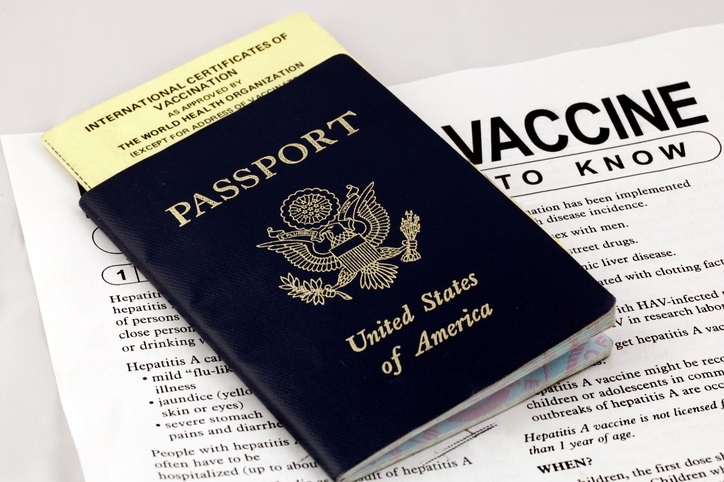The Zika virus has been a large concern, with many Americans cancelling trips abroad due to the outbreak. According to our Chief Medical Officer, Dr. Siegart, “Zika is still a big concern and organizations should continue to have an open dialogue with travelers regarding the disease.”
“Despite the significant media coverage the Zika virus has received, it’s not the only mosquito-borne illness of concern,” continues Dr. Siegart. “A simple mosquito bite can transmit any number of infections, leading to serious health problems. Some common diseases transmitted by mosquitos worldwide include malaria, yellow fever, dengue fever, and chikungunya. Providing education on the illnesses that pose a threat and sharing preventative strategies accordingly can go a long way in helping organizations to address their duty of care while also protecting their travelers.”

To help get you started, we’ve put together the basics on several of the more common mosquito-borne illnesses your travelers should be aware of and take preventive measures for, prior to travel.
Zika:
- Primarily transmitted by a bite of an infected Aedes aegypti mosquito, however, it can also be transmitted from a woman to her unborn baby, via transfusion of infected blood, and via sexual contact
- Symptoms include high fever, rash, muscle pain, and conjunctivitis and will usually appear two to seven days after a bite from an infected mosquito
- Diagnosed with blood tests within a week of the onset of symptoms
- Zika is treated similarly to the flu with rest, fluids, and over the counter pain medication
- As pregnant travelers are at the highest risk for the virus, it’s recommended that pregnant women do not travel to any areas in the world where this is a risk of Zika as it can cause severe fatal brain defects that could result in permanent disability
- There is no vaccine to prevent this disease at this time
Note: The CDC’s interactive search tool helps travelers locate potential areas affected by Zika; and recently, they developed a “Know Your Zika Risk” tool that has risk and prevention tips based on information provided by travelers.
- Transmitted by the female Anopheles mosquito
- Symptoms include high fever, chills, flu-like symptoms, and muscle ache and can develop within seven days
- Diagnosed with a blood test
- The disease cannot be spread from person to person
- Most cases diagnosed in the United States are from travelers who have recently traveled outside of the country
- Those traveling to countries known to be at risk with malaria, young children, pregnant women, and those with HIV/AIDS are at a higher risk for the disease
- There is no vaccine to prevent the disease, but antimalarial medication can be taken prior to a trip
Dengue Fever:
- Transmitted by the bite of an infected mosquito, outbreaks occur primarily in tropical and sub-tropical climates from the Aedes aegypti mosquito
- Symptoms include fever, headache, joint and muscle pain, and extreme pain behind the eyes and typically begin four to ten days after the bite of an infected mosquito
- A series of blood tests is used to detect the illness
- It cannot be spread from person to person
- No specific treatment exists, but travelers should seek medical attention so that they can receive fluids and pain medication if needed
- There is currently no vaccine to prevent dengue fever
- Transmitted by the bite of an infected Aedes or Haemagogus mosquito
- Typical symptoms include fever, muscle pain, jaundice (yellowing of skin), fatigue and vomiting
- Most symptoms will appear three to six days after the infection, but in some cases, an extreme case of the virus can develop after a period of no symptoms
- A series of blood tests can detect yellow fever
- It cannot be spread from person to person
- While there is no specific treatment for yellow fever, travelers should seek medical treatment immediately so they can be monitored closely and be given medication and fluids if necessary
- A vaccine is available and may be required before you visit some countries
- A viral disease most commonly transmitted by the Aedes aegypti and Aedes albopictus mosquitos
- The most common symptoms are fever and joint pain and typically begin three to seven days following a mosquito bite
- A series of blood tests is used to diagnosis this illness
- The illness cannot be spread from person to person
- The best treatment is rest and fluids until symptoms subside
- No vaccine exists to prevent this virus
Dr. Siegart advises that education and prevention are the most effective ways to protect oneself against all of these diseases. Travelers should be encouraged to consult a travel medicine specialist eight to ten weeks prior to any trip to ensure they have received all doses of required vaccinations or preventative medications for their destination(s). Travelers should also check the Travel Health Notices on the CDC’s website to ensure they are aware of current health notices and warnings.
Dr. Siegart also suggests organizations encourage their travelers to stay vigilant when potentially exposed to mosquitos. “Travelers should wear light-colored clothing and long-sleeved shirts and long pants whenever possible. Use bed-nets that have been treated with permethrin when sleeping outdoors or when sleeping in rooms with open windows. Travelers should also use products with DEET (25-35% concentration) or Picardin (20%) on exposed skin and treat their clothing, boots, and tents with permethrin or purchase permethrin-treated clothing and gear.”
Are your travelers prepared for a safe and healthy trip abroad? For more information on travel health and holistic risk management, contact us today.
Safe Travels!




